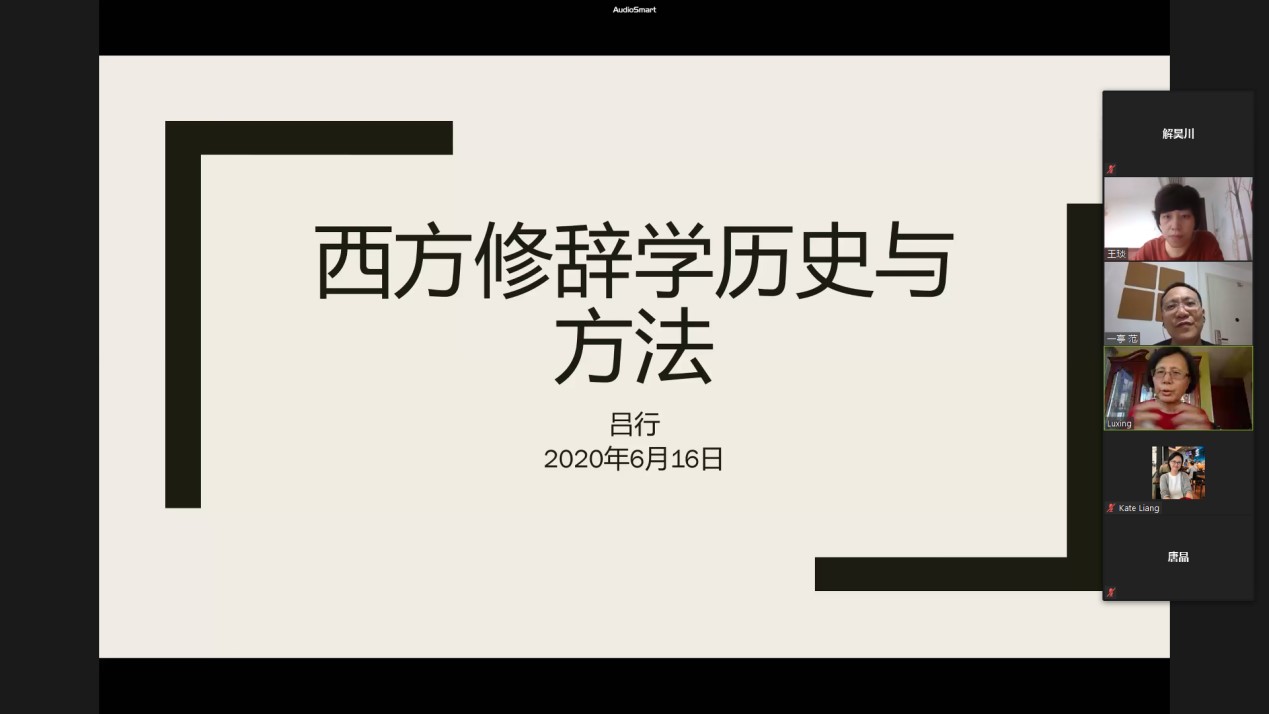The Road to Worldwide Humanities—The History and Methods of Western Rhetoric

The Road to Worldwide Humanities—The History and Methods of Western Rhetoric
June 16, 2020
On the morning of June 16, Professor LYU Xing of DePaul University gave an online lecture on the history and methods of western rhetoric to teachers and graduate students of the School of Foreign Studies (the SFS) of University of Science and Technology Beijing. Wang Yan host the lecture.

Professor LYU Xing first clarified the differences between Chinese and western rhetorical traditions, and introduced in detail the origin and development of Western rhetorical studies. Starting from the ancient Greek times, Professor LYU Xing introduced the origin of western rhetoric, pointed out the persuasive function of early rhetoric in politics and law, and listed the rhetorical views of Plato and Aristotle. About the ancient Roman times, Professor LYU Xing introduced the inheritance and development of the ancient Greek rhetoric by Cicero and Quintilian, and emphasized their contributions to the construction of rhetoric theory and rhetoric education. Professor LYU Xing also said that during the Renaissance and the Enlightenment, rhetoric developed from a language skill serving rhetorical speech and religious communication into a discipline of language, and many rhetoricians and rhetorical theory schools emerged. Then, Professor LYU Xing introduced modern rhetoric and its derivative rhetorical criticism methods, especially the narrative criticism of rhetoric.
At the end of the lecture, Professor LYU Xing emphasized the interdisciplinary nature of rhetoric, especially the relationship between philosophyi and rhetoric. She encouraged us to learnand make good use ofrhetoric. She said that we should not only solve the real world problems in the era of globalization with rhetoric, but also actively explore the human world and the origin of knowledge, and ponder over truth. The lecture was highly praised by the audience.
This lecture provides us with a new perspective to understand rhetoric and plays an important role in our examining the speculative culture of the East and the West, joining cultural exchanges and academic research.
